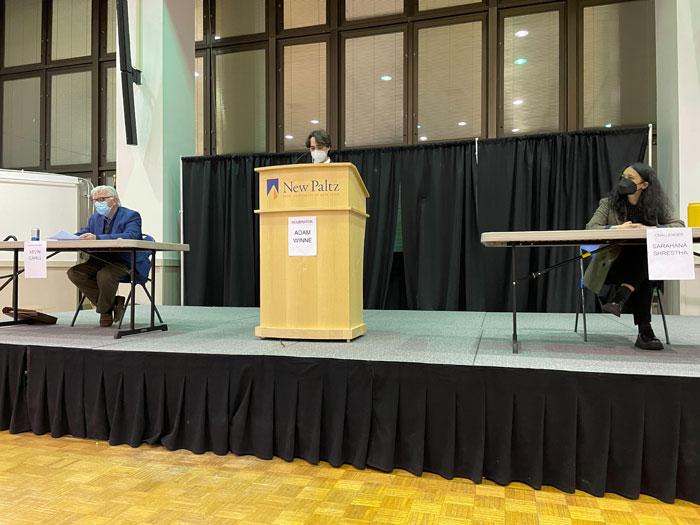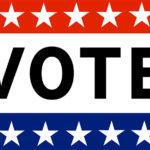NEW PALTZ – Kevin Cahill, the incumbent Democrat who represents the 103rd state Assembly seat, shared a stage with Sarahana Shrestha, who is facing him in a primary, at SUNY New Paltz Thursday during a Meet the Candidates Night.
The event was sponsored by the New York Public Interest Research Group. Cahill was originally elected to state Assembly in 1992 and lost his seat two years later. He was elected again in 1998, and he has served in his seat ever since and seeking his 14th term.
Cahill wants to pass bills he has pending right now like the Bigger Better Bottle Bill, which will increase deposits to a dime, from a nickel on bottles and cans and include wine bottles.
“That would rejuvenate our bottle return bill in New York State,” he said. “It will save our landfills, it will save consumers a ton of money.”
He also wants to pass a carbon tax and stop giving tax breaks to fossil fuel polluters.
“That would generate $337 million a year,” said Cahill of stopping those tax breaks. “The carbon tax bill will generate $15.5 million a year.”
Shrestha is a climate organizer, who like Cahill, is trying to help slow the planet’s destruction.
“I am running for this seat because time is running out with all the crisis we are dealing with, and the number of people who are struggling is very high,” she said.
If Cahill is optimistic about the legislation he is working on, Shrestha is frustrated by the lack of progress in Albany.
“We do have Democratic super majority, but we are not making the moves on the bills,” she said. “The bills are not moving forward to floor for a vote, they are stuck in committees, and the majority of representatives are not speaking up at conferences to make sure these bills move.”
And as an organizer, she wants to build a coalition to get things done.
“The representative is just one piece of that coalition,” she said. “But it is an important piece.”
Shrestha also want to work to fund many interconnected issues like health care, housing, climate and education
“It’s all connected to an economy that prioritizes profits, that prioritizes shareholders, corporations, and we are not funding the things that are actually necessary for our collective wellbeing.”
The state will conduct its primary June 28.








